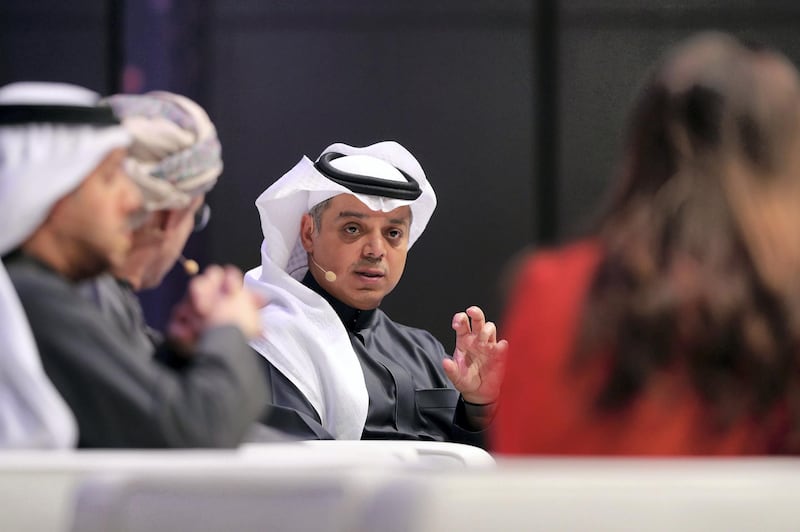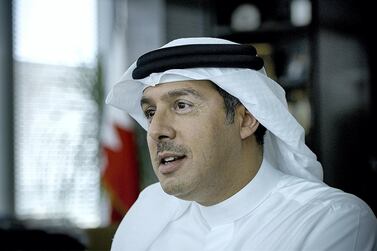Reforms implemented under Saudi Arabia's Vision 2030 economic transformation programme may have caused some short-term pain but have led to the creation of new sectors and opportunities that “will definitely add to employment and to GDP”, said Abdulla Al Zamil, chief executive of Zamil Industrial and chairman of Gulf International Bank.
Speaking on a panel at the Milken Institute Middle East and Africa summit on Wednesday, Mr Al Zamil, a scion of a prominent merchant family in the kingdom, said although companies have had to contend with difficult measures such as expat levies and VAT, major new opportunities are also opening up.
“With any transformation process and any major change, it gets worse before it gets better," he said. "We’ve had some tough years in 2017, 2018 and part of 2019, but if we look at the numbers towards the end of 2019, cement sales are up 24-25 per cent, PMI for non-oil is up to its highest level since 2015, private sector lending is up from the banks.”
“Now we are seeing major inroads to privatisation when it comes to infrastructure and healthcare,” he said.
Major opportunities are also opening up in sectors that have benefited from social reforms, such as tourism and entertainment, he explained.
“Riyadh is bustling, Riyadh is exploding - add to that, G20 is coming to Riyadh. Today, we’re talking about 6-7 strategic major sectors that are being introduced. And the regulatory framework is conducive for those sectors to grow,” Mr Al Zamil said.
“From 2020 onwards, we will see a major inflection point to the sectors that are being introduced.”
This has had a knock-on effect in terms of employment, Mr Al Zamil said, with the unemployment rate for Saudi nationals moderating to a rate of 12 per cent at the end of the third quarter of 2019 from a high of 12.9 per cent in the second quarter of 2018, according to the General Authority for Statistics.
Youth unemployment around the region remains a “huge challenge”, Khalid Al Rumaihi, chief executive of Bahrain’s sovereign wealth fund, Mumtalakat, said.
“How do we create job opportunities that are desirable and that people are skilled for? How do we get employment into sectors that we are developing?”
Other challenges he highlighted included governments having to budget for oil remaining at $40-$60 for a sustained period due to higher levels of US shale production, which will mean eliminating subsidies and forcing companies to become more efficient.
The youth bulge, with almost 60 per cent of the regional population being under 30, was one of four ‘megatrends’ shaping investment in the region by Investcorp’s executive chairman, Mohammed Alhardi. He saw it as both a challenge in terms of job creation and an opportunity when compared to other regions facing aging populations and lower productivity. The others are geopolitical, rapid rates of urbanisation and the fast pace of technological change.
Geopolitics may make some investors wary, but “the GCC in the last 50 years has really proven to be resilient”. Mr Alhardi said, adding “it has maintained stability, growth and development.”
Investors in the region may face slightly higher costs than other regions in areas such as financing or insuring shipping during certain periods, but “the GCC has shown that the rewards outweigh the risks,” Mr Al Rumaihy said.
When asked how governments can best direct their budgets, Mr Alhardi argued that more should be committed towards developing research and development capabilities.
"We’re way, way behind nations of the world in R&D and sector-specific centres in research and development," Mr Alhardi said, adding "I believe the GCC would do itself a lot of good in spending more money and thought on this."








